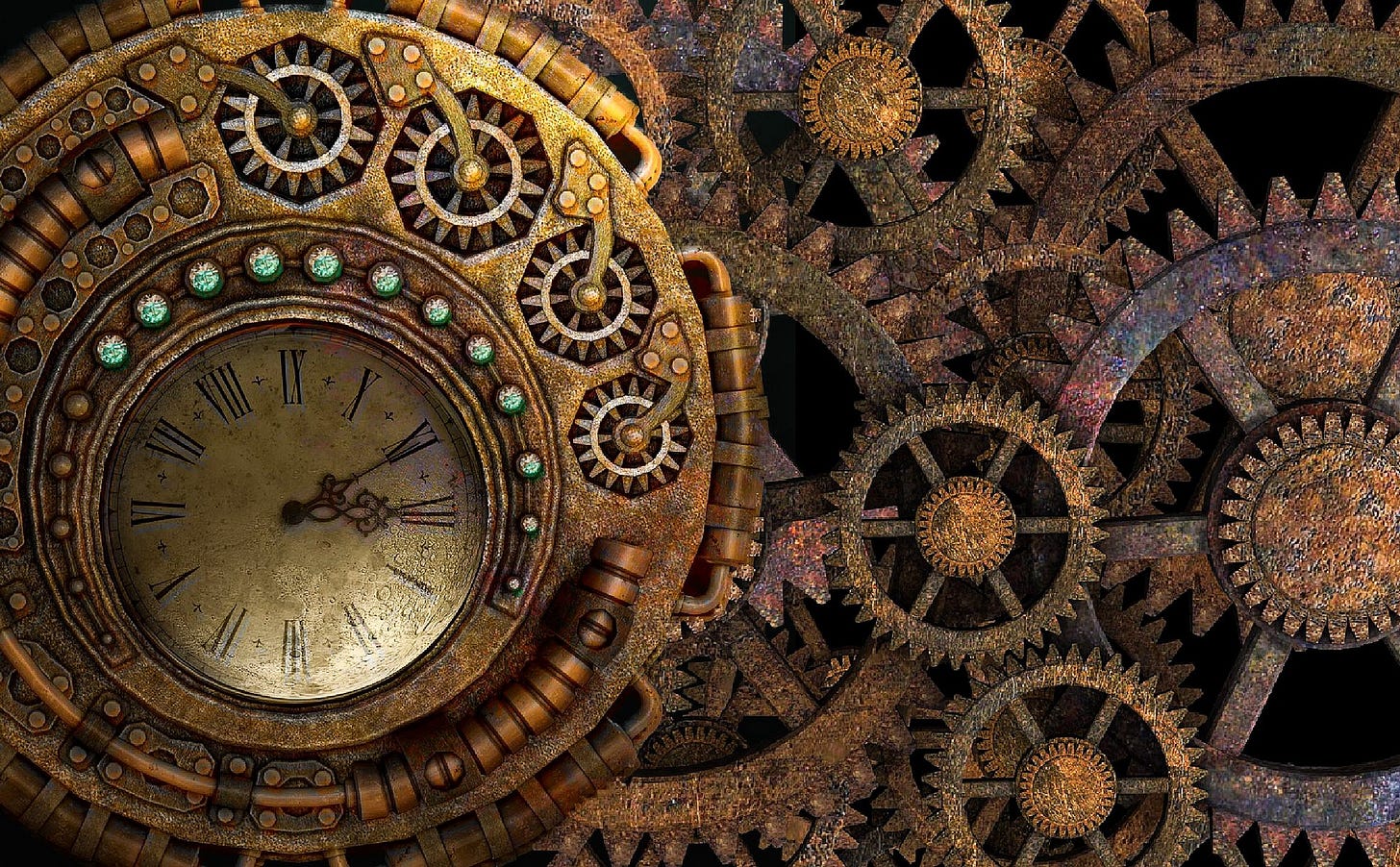
In the previous post, How to preserve the living moment?, reference was made to time, and a question posed about the preservation of time, as it were. This post, complementing it, is reissued from a few years ago, to make up part of a forthcoming collection of posts looking at the experience of time.
EVERYTHING SUBMITS TO TIME . . . Or so it seems. Time makes all grow old, wither and die. Yet growth, too, only occurs with the help of time.
Degeneration and growth are those two processes which are forever occurring in the world. Sometimes one process is dominant, and sometimes the other. In addition, the one cannot do without the other. The stinking, well-rotted manure in the rose garden enables strong and vigorous growth, and the attainment of the goal of the sweet-scented rose.
Of course, time is not a "thing," although we have made it a noun. On the level of metaphor, we can say that time flows. Yet the tempo of this flowing is experienced in very different ways, dependent on our state.
Again, keeping the picturing of a flow, a river may be relatively shallow but loud and rushing. Or, in contrast, there may be deep pools which slowly, quietly, imperceptibly, flow onwards. Is there a way of concentrating time, as it were? Can one somehow add depth? Is it possible to allow the "collecting" of time in deep pools, so that Life may be reflected?
The answer to this, in my experience, lies in self-awareness grounded in sensation of the body. How this may be achieved, little by little, depends on practising it - on one's own and with others - and the help of those who know how to do it, both the living and the dead. By the latter I refer to fragments of guidance one may find in books.
Time, state and attention are closely interlinked, and bear a lifetime's study.
"I don't have time," is the frequent cry. Yet, sometimes, Time stands still . . . and the moment expands.
Next:



